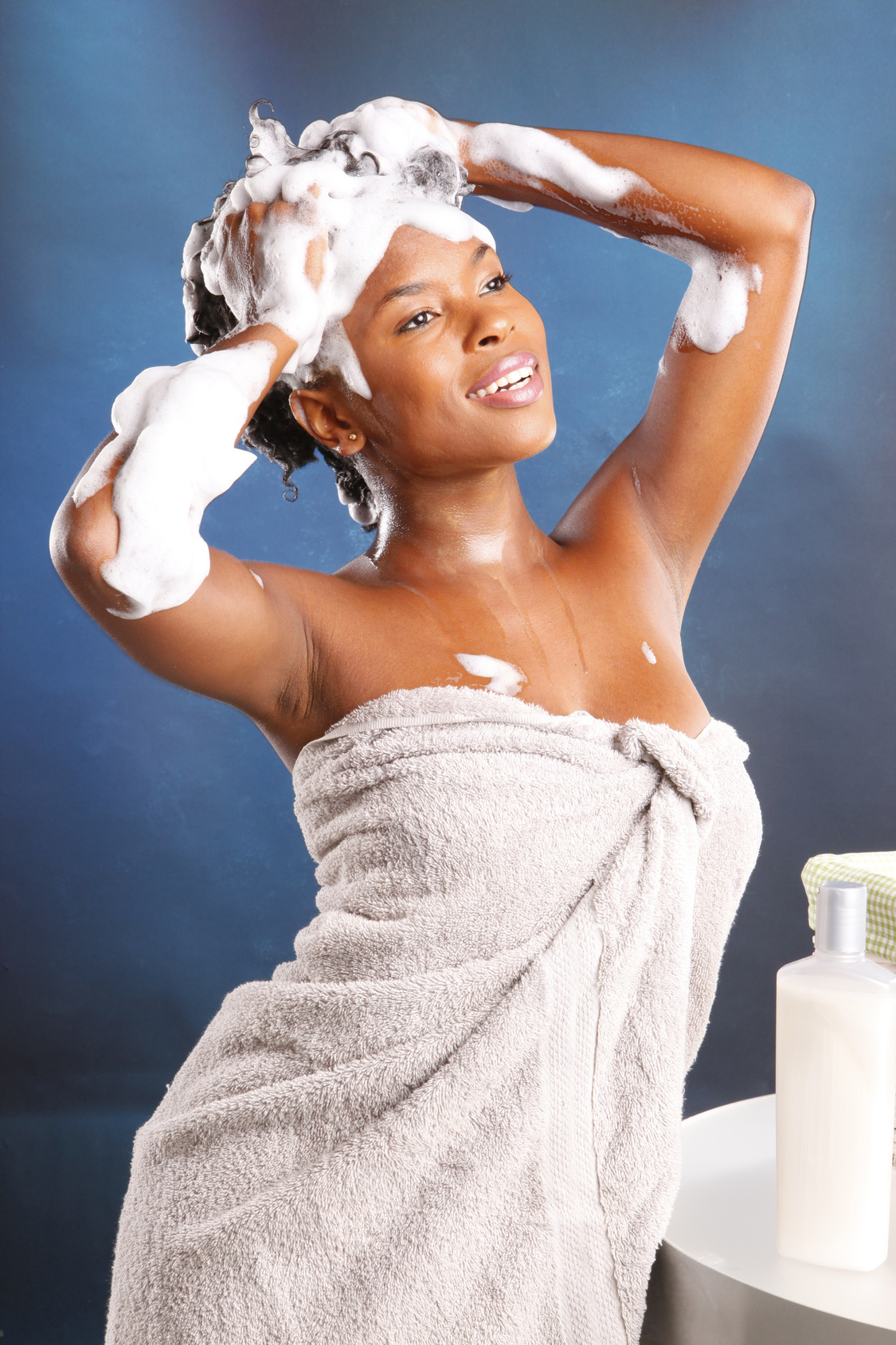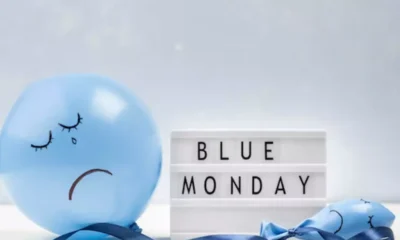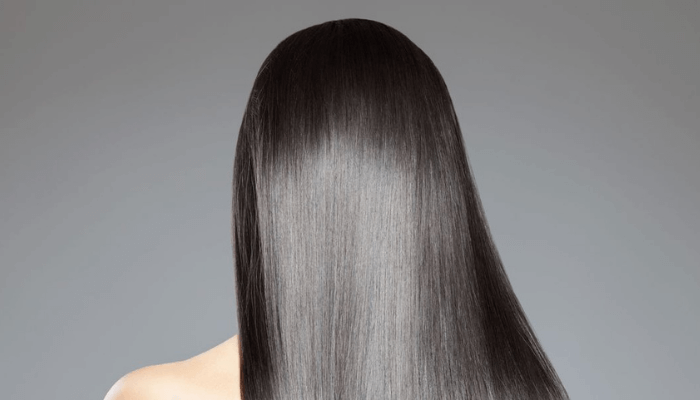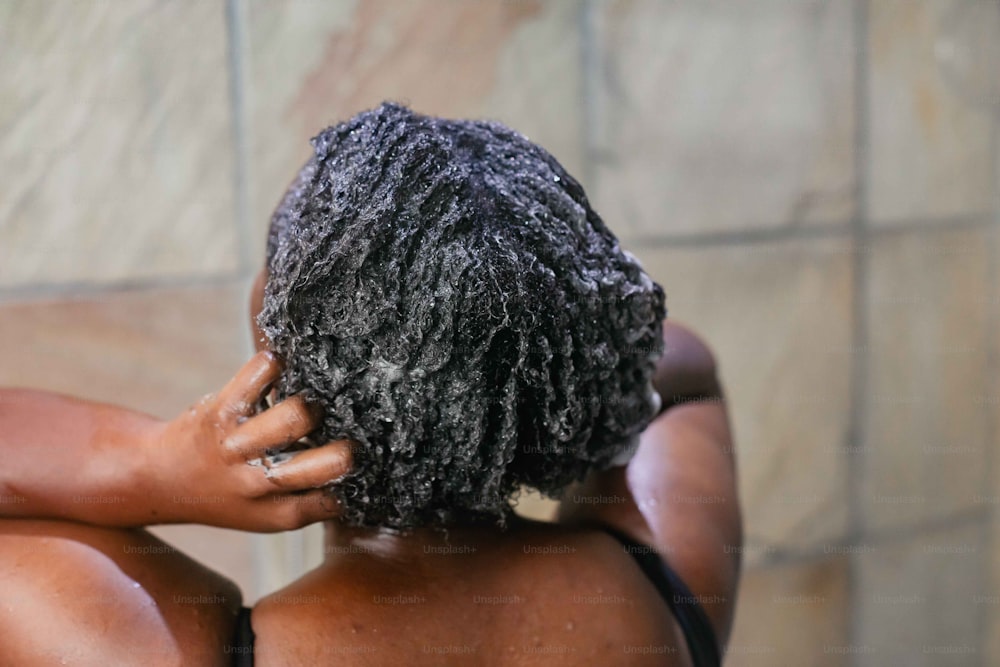BEAUTY
How Often Should You Wash Your Hair?
Published
1 year agoon
By
wpadminee
A lot is happening with your scalp and hair due to factors like heat, exercise, daily activities, and seasonal shifts, impacting their natural condition. Additionally, product buildup and the production of oil by glands near hair follicles contribute to the overall health of your strands.
While it’s common knowledge that washing your hair is necessary, determining how frequently to shampoo for optimal hair and scalp health can be a puzzle.
A popular TikTok trend, #nopoo, suggests eliminating shampoo from the equation, gaining over 288 million views. People adopting #nopoo explore alternative cleansing methods such as apple cider vinegar or plain water, but the scientific evidence supporting the claimed benefits of this trend is limited.
To shed light on the ideal hair cleansing routine, we provided insights on how often you should shampoo based on factors like hair type, scalp health, lifestyle, and more.
Why Is It Important To Wash Your Hair?
While you may have been shampooing throughout your life, let’s revisit why we wash our hair in the first place.
Washing your hair serves two primary purposes: cleansing the scalp and cleansing the hair strands. Scalp cleansing is comparable to cleaning the skin on your face, as it eliminates oil, debris, and dirt.

However, excessive washing can have drawbacks. Washing too frequently, depending on your specific scalp and hair type, can lead to dryness, itching, and even hair loss. It is important to retain the natural oil, sebum, secreted from the hair follicle root on the scalp to nourish the hair. Removing this oil too often can result in scalp irritation and hair damage.
How Often Experts Recommend Washing Your Hair?
It’s crucial to recognize that the ideal frequency for washing your hair varies based on individual scalp conditions and hair types.
For instance, individuals with curly hair often have drier scalps compared to those with straight hair. On the contrary, if your scalp and hair tend to be oilier, you might need to wash more frequently. For those with fine hair, daily or every other-day washings may be beneficial.
Furthermore, lifestyle factors can play a role in determining your washing frequency. These factors include:
- How often you exercise.
- Swimming in a chlorinated pool.
- Working a job where you’re exposed to dust and chemicals.
- Using hair products, which may cause buildup.
- If you chemically treat your hair.
Understanding how your ethnicity affects your hair follicles is crucial. People of African descent typically have asymmetrical elliptical-shaped hair follicles, hindering the sebum’s ability to travel from the scalp to the hair and resulting in increased dryness and potential breakage.
Daily washing is strictly advised, and individuals with Afro-textured, kinky hair might extend the time between washings to one to two weeks.
On the other hand, Caucasian and Asian individuals have round, symmetrical hair follicles, allowing sebum to consistently coat the scalp and hair. This can lead to an oily scalp and lifeless strands. A 2021 study focusing on people of Asian descent found that the highest satisfaction with hair and scalp condition occurred after washing five to six times per week.
Get the latest and greatest updates right away! Join our exclusive Whatsapp Channel and never miss out on exciting news again.
Ultimately, the decision on how often to wash your hair is yours, taking into account various factors.
The Right Way To Wash Your Hair
When washing your hair, focus on massaging the shampoo into the scalp. The primary function of shampoo is to clean the scalp, and applying it directly to the scalp and letting it run through the hair while rinsing is usually sufficient for your strands.
Massaging the shampoo onto the scalp boosts blood flow, nourishing your scalp and hair follicles. Leave the massaged-in shampoo on your scalp for a few minutes before rinsing to allow the active ingredients to cleanse most efficiently.
What Could Happen If You Don’t Wash Your Hair?
Not washing your hair can lead to consequences such as oiliness and scalp buildup. Despite the “no poo” trend on social media, where people avoid cleansing their hair with shampoo, it’s essential to consider the consequences of this buildup. It can clog hair follicles, weigh the hair down, and disrupt scalp pH, sebum levels, and the scalp microbiome.

Shampooing, with the right timing varying for individuals, is crucial for promoting scalp and hair health. If you have concerns about your hair and scalp, especially if you experience dryness, itchiness, or discomfort beyond the norm, it’s advisable to consult with your dermatologist.
How To Stretch The Time Between Washing Of Hair
If you’ve recently styled your hair and aim to maintain its health and appearance, consider the following:
- Engage in light exercises that don’t involve excessive sweating, such as gentle walks or yoga. If planning intense and sweaty exercise, schedule it just before your intended hair wash and styling session.
- Use dry shampoo judiciously and sparingly. Continuous spraying of dry shampoo can result in buildup that may irritate your scalp.
How Shampoo Type Affects How Often You Wash Your Hair
Ensuring you use a shampoo and conditioner tailored to your specific hair type is crucial, and there is a wide range available, as indicated by past research.
For instance, selecting a shampoo that suits your needs is highly important. If you have an oily scalp, using a moisturizing shampoo might result in excessive moisture, necessitating more frequent washing.
Consider opting for a shampoo explicitly formulated for oily hair or one labelled “clarifying” or “balancing”. Clarifying shampoos, designed to remove buildup, can be beneficial, especially if you frequently use hair products like dry shampoo, which can accumulate over time.
With numerous shampoo formulations in the market, if you feel overwhelmed by the choices, seeking recommendations from your stylist or dermatologist based on your hair type is always a prudent approach.
In Conclusion…
Cleansing your hair is essential to eliminate dirt, oil, and product buildup, contributing to the overall health of your hair and scalp.
The optimal frequency for washing your hair varies based on individual factors such as hair type and lifestyle, spanning from once a day to twice a month.
For more articles like this, check here.
You may like
-


Do Bras Really Keep Breasts From Sagging? Check This Out!
-


Statements You Make With Freeform Dreadlocks & Myths Around It
-


5 Things You Should Always Keep Private
-


Why Do Women Live Longer Than Men? See Reasons Behind The Longevity Gap
-


How To Beat The Monday Blues: Simple Strategies For A Smoother Start
-


How To Strengthen Falling Hair With Castor Oil
BEAUTY
Trying These Would Make Your Synthetic Or Human Hair Wigs Luscious & Beautiful
Published
4 months agoon
December 21, 2024By
wpadminee
Wigs, whether synthetic or made from human hair, are versatile tools for styling, enhancing your look, or providing a confidence boost.
However, keeping them luscious and beautiful requires proper care and maintenance. Here are effective methods to maintain your wigs and ensure they stay gorgeous.
1. Understand the Material of Your Wig
Synthetic wigs and human hair wigs have different care needs. Synthetic wigs are more affordable and pre-styled, while human hair wigs offer a natural look and greater styling flexibility.
Knowing the material of your wig will guide you in choosing the right products and care methods to keep it luscious and beautiful.
2. Wash Your Wigs Properly
Proper washing is essential to maintain the beauty of both synthetic and human hair wigs:
- Synthetic Wigs: Wash them every 8–10 wears using cool water and specialised wig shampoo. Avoid rubbing or twisting the fibres to prevent tangling and damage.
- Human Hair Wigs: Wash them less frequently, about every 10–15 wears, with sulphate-free shampoos and conditioners. Always rinse with lukewarm water and pat dry gently.
Both types benefit from air drying on a wig stand, as this helps preserve their shape and style.
3. Detangle Before and After Use
Use a wide-tooth comb or wig-specific brush to gently detangle the strands. Start at the tips and work upward to the roots. For synthetic wigs, this prevents breakage, while for human hair wigs, it helps maintain natural smoothness.
4. Conditioning is Key
- Synthetic Wigs: Use wig conditioners designed for synthetic fibres. Focus on the ends, as they are more prone to dryness.
- Human Hair Wigs: Apply leave-in conditioners or serums to keep the strands soft and shiny.
Conditioning ensures your wigs remain luscious and beautiful over time.
5. Store Wigs Properly
Proper storage prevents tangling and helps maintain the style. Use a wig stand or a mannequin head. If you need to travel, pack your wig in a silk or satin bag to reduce friction and keep it looking fresh.
6. Use Heat Carefully
Synthetic wigs are generally heat-sensitive, so avoid styling them with heated tools unless they are heat-resistant. For human hair wigs, use heat tools sparingly and always apply a heat protectant to prevent damage.
7. Avoid Excess Shine on Synthetic Wigs
Some synthetic wigs may appear overly shiny. To reduce the artificial gloss, lightly dust them with baby powder or dry shampoo. This technique gives synthetic wigs a more natural and luscious appearance.
8. Refresh and Restyle Regularly
- Synthetic Wigs: Use styling sprays made specifically for synthetic fibres to refresh the look.
- Human Hair Wigs: You can curl, straighten, or colour them like natural hair, but ensure you use professional-grade products.
Frequent restyling keeps your wigs attractive and aligns them with current trends.
9. Rotate Between Wigs
Having multiple wigs allows each to rest and regain its form, extending its lifespan. Alternating between wigs also gives you variety and reduces wear and tear on a single piece.
10. Seek Professional Care
For extensive maintenance or restyling, consider taking your wig to a professional. Experts can deep-clean, restore, and even repair damages to both synthetic and human hair wigs, ensuring they stay luscious and beautiful for years.
By following these tips, you can ensure your synthetic and human hair wigs remain in excellent condition, radiating beauty and confidence every time you wear them.
Proper care not only extends their lifespan but also enhances your overall appearance, making every day a fabulous hair day.
For more articles on beauty, you can explore resources here.
BEAUTY
Nigerian Model, Samuel Nwajagu Becomes First African To Win Mister International Title
Published
4 months agoon
December 16, 2024By
Reporter
Nigerian model Samuel Nwajagu made history by becoming the first African to win the prestigious Mister International title.
This landmark achievement occurred during the 16th edition of the pageant, held in Bangkok, Thailand.
The event saw 47 contestants from around the globe, including debutant countries like Cameroon, England, Benin Republic, and Mali, competing for the coveted title.
Mister International, regarded as one of the largest male beauty pageants globally, is second only to Mister World in terms of national-level participation.
Since its establishment in 2006 by the late Alan Sim in Singapore, the competition has grown to attract participants from over 80 countries, with an annual average of 38 contestants.
This year’s competition incorporated several activities, from city tours to preliminary rounds showcasing physical fitness, cultural attire, and formal wear.
Contestants also faced topical questions, allowing them to display their intelligence, confidence, and charisma.

Nwajagu’s remarkable poise and versatility set him apart, ultimately earning him the title. He triumphed over Nguyễn Mạnh Lân from Vietnam and Glenn Victor Sutanto from Indonesia, who were among the top finalists.
Kim Thitisan Goodburn, the 2023 Mister International winner, passed on the crown to Nwajagu, symbolising the continuity of excellence in the competition.
Notably, the 2024 pageant marked a historic shift by permitting fathers, married men, and divorced individuals to compete for the first time in its 16-year history.
Hailing from Anambra State, 23-year-old Samuel Nwajagu is celebrated for his dedication to fashion, fitness, and wellness.
His victory not only highlights his talent but also underscores Africa’s growing representation on the global stage of pageantry. Through determination and charisma, Nwajagu’s success is an inspiration for aspiring models across the continent.
Check out more updates here.
ARTS & CULTURE
Does Anklet Really Signify Promiscuity?
Published
4 months agoon
December 7, 2024By
wpadminee
What is an anklet?
An anklet is a versatile piece of jewellery that women typically wear around their ankles. Crafted from materials like chains, beads, or a mix of both, anklet meanings vary across cultures and styles.
Many fashionable women choose anklets to make a bold style statement, embracing their elegance and charm.
In Nigeria, people often call this accessory a “leg chain” or “ankle chain,” reflecting its cultural relevance. In pop culture, it’s popularly known as an “ankle bracelet.”
Anklets here focus more on fashion than symbolism, though interpretations can differ. With various styles and intricate designs available, anklets offer countless aesthetic options, allowing women to showcase their personal flair.
Ultimately, anklet meanings can be deeply personal, influenced by tradition, culture, or simply individual taste.
Cultural and Historical Significance
Throughout history, anklets have held different meanings across various cultures. While some view them as mere adornments, others have associated them with deeper, sometimes controversial, connotations.
In some societies, ancient and modern, anklets symbolise promiscuity.
Early Usage in Ancient Civilisations
Egypt is often credited as the birthplace of anklets, but India played a significant role in their widespread acceptance. In India, anklets were part of traditional attire, known as pattilu, payal, or nupu.
These terms also include Paujinupur and padapadma. Early Indian literature, such as the first-century epic Silappatikaram, mentions anklets, highlighting their cultural importance.
Rajasthani women were known for their elaborate anklet designs, reflecting regional traditions.
Among the Odisha people, gold anklets were once reserved for warriors, while brides included them as part of their wedding regalia.
Married women often wore anklets to signify their marital status, and dancers used those with dangling bells to enhance their performances.
Similarly, in ancient Egypt, anklets indicated social status. Wealthy women wore gold anklets, while silver or leather versions were common among slaves and the poor.
These accessories, known as menefret or kholkai, reflected one’s place in the social hierarchy. Interestingly, some accounts suggest that anklets were linked to temple worshippers and even prostitutes, though these claims remain largely unverified.
Modern Evolution and Symbolism
Over time, the meaning of anklets has evolved significantly. In the 1970s, during America’s “sexual revolution,” anklets became symbols of female empowerment and liberation.
This era emphasised women’s freedom to express themselves, including their sexuality. Consequently, anklets began to carry connotations of promiscuity, especially within the “hotwife” culture.
The “Hotwife” Phenomenon
A “hotwife” refers to a married woman who engages in consensual extramarital relationships with her husband’s approval. Various anklet symbols reflect this dynamic:
- Two male symbols and one female symbol: Indicate openness to relationships with men of any race.
- Queen of spades: Represents a preference for Black men.
- Heart symbol: Suggests a happy marriage that includes mutually beneficial intimate relationships outside the primary partnership.
- The key to happiness: Denotes a marriage where the husband’s extramarital activities are contingent on his wife’s consent.
Anklets in Contemporary Nigerian Fashion
Today, many Nigerian women wear anklets purely for their aesthetic appeal, often unaware of the historical or cultural associations. For them, anklets are fashion accessories, not symbols of promiscuity or class distinction.
Despite lingering societal judgments, especially within conservative African contexts, it’s essential to recognize that fashion choices are personal.
Women should not face harsh criticism for wearing anklets, as these judgments stem from outdated or culturally irrelevant perspectives.
In conclusion…
Anklets are versatile fashion pieces that have transcended their historical roots. While some cultural connotations persist, modern women wear anklets to express their style and individuality.
It is crucial to separate fashion from judgement and allow women the freedom to make their own choices about their bodies and accessories.
Let’s appreciate anklets for what they are today: beautiful, empowering symbols of self-expression.
Read more articles here.
Latest


Samsung Galaxy S25 Series Sets The Standard Of AI Phones As A True AI Companion
Samsung Galaxy S25 series sets the standard of AI phones as a true AI companion …Pioneering the multimodal era with...


5 Things To Expect In Afrobeats In 2025
Afrobeats is poised to reach unprecedented heights in 2025 as Nigerian music continues its remarkable global ascent. The genre’s explosive...


Here Are The 7 Most Ancient Countries On Earth
The oldest countries in the world stand as remarkable testaments to human civilisation, each containing landscapes and monuments that narrate...


Why Self-Reflection Is More Important Than Resolutions
Millions of people embark on a yearly ritual: they sit down with a notebook and pen, eager to craft a...


Nollywood Director, Kemi Adetiba Teases King Of Boys 3
Nollywood director Kemi Adetiba has revealed that another instalment of King of Boys will be released on December 25, 2025....


John McEnroe Says He Can Be The Commissioner Tennis Needs Amid Doping Crisis
Recent doping controversies involving top players have not damaged tennis’s reputation, but John McEnroe believes that appointing a single commissioner...


“Everybody Loves Jenifa” Becomes Nollywood’s Highest-Grossing Film Of All Time
Nollywood filmmaker Funke Akindele has achieved a historic milestone with her latest film, “Everybody Loves Jenifa.” The film has officially...


FG To Premiere TV Series, “Hidden Riches” On Mining Sector On January 25
Nigeria’s Federal Government will launch an ambitious television drama series focused on the nation’s mining sector, premiering “Hidden Riches” on...


Qing Madi Delivers A Soulful Performance Of “Favourite Pyscho”
Rising Afro-RnB sensation Qing Madi launches into 2025 with a mesmerising performance on the prestigious COLOURS platform, showcasing her latest...


Taiwo Awoniyi’s First Goal Of The Season Seals Nottingham Forest’s Win Over Wolves
Taiwo Awoniyi made a triumphant return to Premier League action. He scored in stoppage time to help Nottingham Forest crush...
-Ad-





